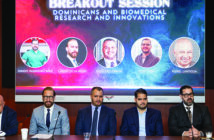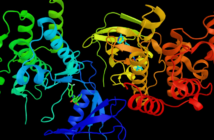An old problem gets new attention.
How can doctors prevent elder abuse?
Elder abuse—the physical, psychological, or sexual harm, neglect, or financial exploitation of older people—is estimated to affect one in 10 elderly Americans every year. Compared with peers who have similar medical problems, victims of elder abuse are three times more likely to be admitted to the hospital, four times more likely to be admitted to a nursing home, and three times more likely to die prematurely. Richard W. Besdine, MD, the David S. Greer, MD, Professor of Geriatric Medicine, director of the Division of Geriatrics and Palliative Medicine at Alpert Medical School, and director of the Brown School of Public Health’s Center for Gerontology and Health Care Research, explains how physicians can protect older patients.
Health care professionals can include elder abuse in conversations with patients and educate ourselves on the resources available. Physicians initiate only about 2 percent of the reported cases of abuse and neglect. In a survey of internists and family physicians in Ohio, more than 60 percent of clinicians indicated they had never asked elderly patients about abuse. This needs to change.
But this problem cannot be left to health care professionals alone; its solution truly will take a village. We need multidisciplinary teams, including representatives from the justice and financial systems as well as health care, who work collaboratively to identify victims and meet their needs. We also need more funding: in 2009, federal agencies spent $11.9 million for all activities related to elder abuse, a tiny fraction of the $649 million for violence against women programs. Advocates working on child abuse and domestic abuse have overcome similar hurdles; now is the time for elder abuse research to flourish.
For now, families, caregivers, and professionals alike must know that if they see or suspect any kind of elder abuse, the first call is state-based Adult Protective Services (www.napsa-now.org), which has many local offices. You can also find state resources through the National Center on Elder Abuse (www.ncea.aoa.gov).
The good news is that elder abuse has become a domain of increasing scientific scrutiny, with more research, education, and awareness in the past 20 years. In an arena where health care, finances, the law, and social services intersect, knowledge is power, and empowerment is a big part of the solution.



